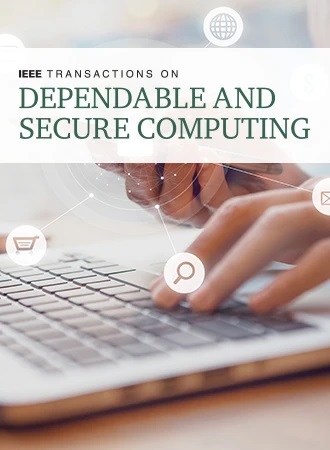隐私保护决策超过b区块链
IF 7
2区 计算机科学
Q1 COMPUTER SCIENCE, HARDWARE & ARCHITECTURE
IEEE Transactions on Dependable and Secure Computing
Pub Date : 2023-11-01
DOI:10.1109/tdsc.2022.3231237
引用次数: 0
摘要
-许多bb0应用程序需要民主的链上决策。在这项工作中,我们提出了一个具有隐私保障的社区包容性分散协作决策系统。它的关键组成部分是受选择架构启发的两阶段投票方案。我们的决策系统与大多数现有区块链基础设施兼容。此外,它支持流动民主/代表投票,以获得更好的协作智能。也就是说,利益相关者可以直接对提案进行投票,也可以将他们的投票权委托给专家。当投票委员会的大多数成员都是诚实的时候,没有人能够以不可忽略的概率推断出选民的投票偏好或授权。为了支持并发多个投票事件,我们设计了一个分布式批量密钥生成协议,该协议可以通过投票委员会成员同时生成多个密钥,每个密钥的分摊通信成本为O (n),其中n为参与者的数量。此外,我们的系统支持“演进委员会”,即投票委员会的成员可以在投票期间更换。我们在Scala中实现了一个试点系统,测试结果表明我们的系统可以高效地支持大量参与者。本文章由计算机程序翻译,如有差异,请以英文原文为准。
Privacy-Preserving Decision-Making over Blockchain
Many blockchain applications require democratic on-chain decision-making. In this work, we propose a community-inclusive decentralised collaborative decision-making system with privacy assurance. Its key component is a two-stage voting scheme inspired by choice architecture. Our decision-making system is compatible with most existing blockchain infrastructures. In addition, it supports liquid democracy/delegative voting for better collaborative intelligence. Namely, stake holders can either vote directly on proposals or delegate their voting power to experts. When majority of voting committee members are honest, no one can derive voters’ voting preferences or delegations with non-negligible probability. To support concurrent multiple voting events, we design a distributed batch key generation protocol that can generate multiple keys simultaneously by voting committee members with amortised communication cost of $\mathcal {O}(n)$ O ( n ) $n$ n
求助全文
通过发布文献求助,成功后即可免费获取论文全文。
去求助
来源期刊

IEEE Transactions on Dependable and Secure Computing
工程技术-计算机:软件工程
CiteScore
11.20
自引率
5.50%
发文量
354
审稿时长
9 months
期刊介绍:
The "IEEE Transactions on Dependable and Secure Computing (TDSC)" is a prestigious journal that publishes high-quality, peer-reviewed research in the field of computer science, specifically targeting the development of dependable and secure computing systems and networks. This journal is dedicated to exploring the fundamental principles, methodologies, and mechanisms that enable the design, modeling, and evaluation of systems that meet the required levels of reliability, security, and performance.
The scope of TDSC includes research on measurement, modeling, and simulation techniques that contribute to the understanding and improvement of system performance under various constraints. It also covers the foundations necessary for the joint evaluation, verification, and design of systems that balance performance, security, and dependability.
By publishing archival research results, TDSC aims to provide a valuable resource for researchers, engineers, and practitioners working in the areas of cybersecurity, fault tolerance, and system reliability. The journal's focus on cutting-edge research ensures that it remains at the forefront of advancements in the field, promoting the development of technologies that are critical for the functioning of modern, complex systems.
 求助内容:
求助内容: 应助结果提醒方式:
应助结果提醒方式:


